Say Hello to One of the Finest New Piano Talents in America.
Is there really a prestidigitating piano-playing polyglot of a musical magician that can merge the styles of Yanni and Eastern Kentucky? A once in a lifetime piano talent in America that melds and moves effortlessly between the eclectic styles of Yanni, Jerry Lee Lewis, Billy Joel, Bruce Hornsby, Chick Corea and more?
Yes. And the only thing more impressive than this person’s prodigy-like talent is his humble, down-home personality and life story.
Meet…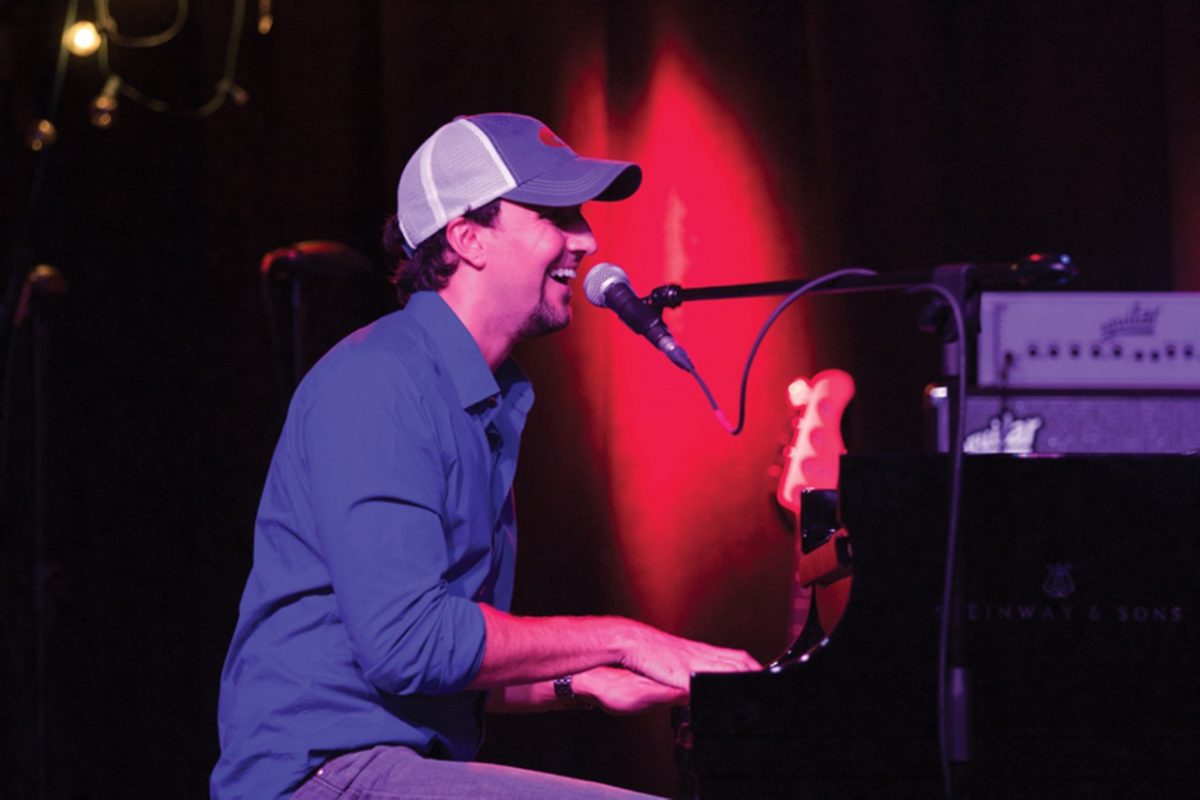
Kory Caudill, singer, songwriter, composer, and piano player extraordinaire. A young man from Kentucky that performs wearing blue jeans, a University of Kentucky ball cap, and Creedence Clearwater Revival-like flannel shirts, but plays like Beethoven, Jerry Lee Lewis, and Bruce Hornsby combined, even on Bruce’s wildest, fastest, prestidigitating versions of “Spider Fingers.”
Launched Career When He Was Four Years Old
When Kory was four years old, he shocked his parents when he toddled to the piano and played the melody to John Williams “Theme from Superman.” At the age of four, he became involved with the Kentucky Opry at the Mountain Arts Center in Prestonsburg, Kentucky.
Versatile Virtuosity
Kory Caudill has a new album out called. “Tree of Life.” And guess what? He self-funded it by playing studio gigs and touring with Justin Moore and Brad Paisley. And versatile? Rock, Jazz, Classical, Country, Boogie Woogie and more. Kory describes his style as “Yanni Meets Eastern Kentucky.”
Throughout the interview, you’ll see examples of Kory playing different musical styles. Let me know what your favorite is. Email me at [email protected].
Interview:
Steve Kayser: (Steve): When did you realize music was going to be your career?
Kory Caudill (Kory): I love getting this question. I grew up in eastern Kentucky before social media made the world a much smaller place, so I feel like it was common for kids in that area to have misconceptions of what they could and could not be, with the job of “musician” being the exception.
This may come as a surprise to people from outside the region, but there are a lot of artistic resources available in eastern Kentucky that most places don’t have, most notably the Mountain Arts Center and the Kentucky Opry. I was able to gain some solid performance and recording experience there at an early age, so it never really occurred to me to pursue anything else for a living. All this in mind, I still grew up with the notion that;
“if I have to be as good as James Whited (guitarist for the Kentucky Opry), and he’s in Prestonsburg, there’s no way I’ll ever be good enough to keep up with folks from Lexington, Louisville, or Nashville.”
So when I was able to attend the Governor’s School for the Arts in 2003, I got to spend weeks with kids from across the state and focus solely on music the entire time. This allowed me to understand how unique the opportunities are that I had as a kid and that the Eastern Kentucky music scene was one of the most vibrant in the country. I credit my Eastern Kentucky roots with the drive to be a musician, and I credit GSA for providing me that “aha” moment where I was certain I would be a career musician.
I also feel like it’s typical for artists to have had to overcome skepticism from their inner circles when they make the decision to pursue music for a living. We often hear of folks being told they couldn’t be a successful artist, or that “musician” isn’t a real profession, and they’re driven by the want to prove those people wrong. I consider myself one of the most fortunate people in the world because every person in my life has done nothing but encourage me to be a musician. My dad always jokes that he “hocked the farm” to allow me to attend out of state, private school and major in music, and I always knew that it made him and Mom happy to do that.
A Kory Caudill Piano Sampler
Steve: Who have been your biggest musical influences? You play an eclectic and diverse set of music.
Kory: Thank you! My parents are both professional musicians, so I was turned on to a lot of hip music at an early age. I’m sure this is the case with most musicians, but my influences came in phases. Some folks I’ve done more than just listen to and studied are Bruce Hornsby, Pat Metheny, Billy Preston, the Yellowjackets, Yanni, Oscar Peterson, the Band, Lynyrd Skynyrd, Elton John, Goose Creek Symphony, and so on.
I’m proud of the record I made, “Tree of Life.” I heard a lot of these artists make their way into my sound without doing it intentionally. I also studied a lot of Chopin and Beethoven growing up. I grew up playing country music and loving the textures and simplicity of the music. I feel like some folks who live only in the jazz world can be quick to assume country is easy to play, but it’s not. In country (the kind I grew up playing), you’re left very exposed, so timing, phrasing and the melodic nature of what you’re playing has to be dead on. One of my favorite things we did was have the guitar players play twangy country licks, but with a modern tone. If you listen closely to the title track, Tree of Life, Mark Stephens is playing a hook in the chorus that you’d expect to hear out of a steel guitar, but it’s disguised by a gritty tone. All this said my biggest musical influence are my parents, and I don’t just mean that in a sentimental way. Mom was an excellent music teacher; she really knew how to make things connect for me when I was struggling with them.
Is This Awesome or What?
SIDEBAR: A good writer is never supposed to let his views and values tilt or taint an interview. But, in these days, when a son or a daughter so outwardly credits, and gives respect to their parents for giving them the love and support that enabled them to be the special person they are (without checking their cell phone 15 times in five seconds), it’s just awesome. Plus, I never claimed to be a good writer. So we’re good.
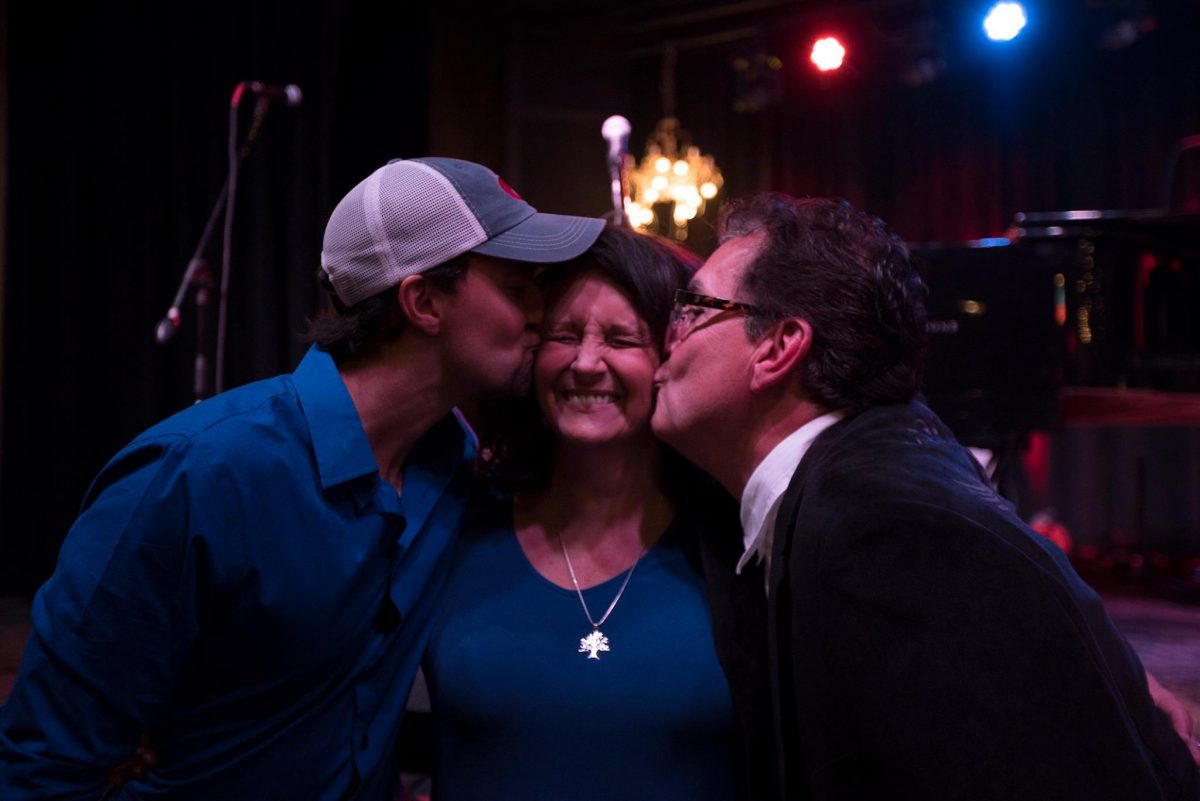
Dad is an awesome piano player, but I think he’s best on Hammond B3. Dad has an instantly recognizable style that will make the hair on your arms stand up!
Talking About the Hammond B-3 Organ
Steve: What has been your most enjoyable concert yet?
Kory: This is a tough one. I’ve been able to make music with a lot of great people, and I’ve already performed thousands of shows in my relatively short career. There have been the huge concerts with Justin Moore, where you’re onstage with guys you consider brothers, and you look out into a sea of people and think;
“How did we get here? We were just in a van and trailer a couple of years ago.”
There have been some larger scale concerts of my own that were extremely memorable as well. That said, the most fun I’ve had was my senior recital at Belmont. Of course, I had to perform a couple of tunes that leaned more academic (and ate me alive), but none of that mattered. For the last tune, I surprised Dad and got him up on stage to play “This Little Light of Mine” with us. After an hour of tough, polished music, Dad came on stage, and we just mapped out the tune right there as if we were in church. Dad and I had performed together regularly, but never in Nashville in a theater full of other great musicians. It was an awesome moment in which I didn’t even realize I’d shut everything else out and was just jamming with my Dad, which was the perfect way to end my college career and begin my journey as an artist.
This Little Light of Mine
Steve: The business of music is much different than the raw creation process of music. What have been your three most important lessons so far?
Kory: Great question. As a new artist, I’ve learned to enjoy the process of blending the two. A lot of artists speak negatively on the business side of things, but the business side is simply the link between your audience and the music you want to share with them. I’m no expert, and nobody’s ever accused me of being the sharpest tool in the shed, but here are a few of the things being a new artist has taught me:
1. Be honest with yourself and create what’s genuine.
I know it’s easy for me to say this because I’m not a typical artist. I’ve lucked into a situation with my management and record label where I can pretty much create what I want, and they’ll put it in front of people, but I still think they’re willing to do so because the authenticity of what I give them only enhances the commercial potential of what we do. Even though I’m in a genre that has more room to breathe as far as creativity, I know that audiences in all genres are perceptive to whether or not an artist believes what they’re singing or playing, and that in turn has an effect on the business side of what they do.
2. When it comes to making music, listen to what everybody has to say.
Even your critics, even the folks who know little about music, and even your spouse! When I was in the mixing phase of my debut album, my wife Amanda walked into the studio and said (in her sexy little accent that turns more country when something has offended her) “gosh, what is that sound… it sounds like it’s from China or something,” in response to a track I was mixing. She was referring to an acoustic guitar that I’d EQ’d all the bottom end and mid range out of, which I’m guessing made it sound more like a sitar to her. My gut reaction was to laugh and tell myself she didn’t know what she was talking about, but I wised up and had two “light bulb” moments from this.
One, it reminded me that the purpose of making music is to make other folks happy. There are some brilliant musicians out there who are set in their ways and have become successful because of the “I’m an artist, I only do things a certain way, if you don’t get it then you’re not artistic” thing… I respect that, but that ain’t me. I want people like Amanda to hear my music and experience something personal instead of thinking, “wow, he’s really good” or “well that was weird sounding, he must be creative.”
Two, I’m trying to sell music to folks who don’t have time to learn about music, nor do they need to concern themselves with how to describe what they hear. Like Amanda, the folks I want to sell music to do other important things for a living (in Amanda’s case, much more important). It’s ok to be firm regarding how you want to make your music– I am–but I like to be of the mindset that everybody has something valuable to contribute to your creation process.
3. It’s about relationships. This music career thing is awesome.
You get to meet more people in a month than most people get to in a lifetime. Make friends with everybody. I’ve got a feeling that if I’m lucky enough to make it to old age, I’m going to think back to all the friends I’ve made, and the music will have only been what allowed me to meet them.
Steve: I heard Bruce Hornsby say in an interview that it’s much harder to sell records than it used to be because of the ways the music industry has been disrupted and the pirating issues. The economics, the money for musicians, seems to be in touring. Are you finding that to be true?
Kory: It’s a little early for me to be able to answer this with any certainty, but I do think that Bruce Hornsby and I are similar in that we tend to focus on our live performances to begin with. I’m hoping that as we start to really work “Tree of Life” this summer we’re able to turn some heads as far as sales, but I’m heavily focused on getting folks out to concerts and bringing them to the edge of their seat from start to finish. I’ve always wanted to be a performer, and making albums is a fun part of that process. I’m finding myself doing different, grittier versions of my songs live because fewer rules apply than they do in the studio. Economically, I’m still figuring things out, and I may not be the best example because of how different my career path is. For now, I sell the most records on tour dates, so the two seem to go hand in hand, but I’m curious to see how things shape up as we grow.
Steve: Why did you decide to self-fund your Tree of Life album? What’s the theme of your album? What’s it mean to you?
Kory: For starters, I didn’t have a record deal before I made the album, so my options were to fund it, or try crowdfunding. I think that crowdfunding can be a great thing for a lot of different goals, such as medical expenses, mission trips, extracurricular academic ventures, etc., but strictly about music, I’m not a fan of it. I think that crowdfunding in music is different than other areas because it’s possible to work as a musician to obtain the funds you need, but many in my generation lack the patience and drive for this.
Being a musician means I have the privilege of providing folks with an experience. I knew I wanted to make an album one day, so I moved to Nashville at 18 and began a several year process–which involved little sleep– to obtain the tools and resources to do so. Also, my parents did everything they could to send me to a music college they couldn’t afford. After graduating, I began work as a touring musician, and after a couple of years, I had the money to record an album they way I wanted it recorded. I was driven to do this because it gives me a purpose to make something that has a positive effect on people. I could have never asked folks to pay for something I wanted to do to make them proud and happy. Additionally, it would negate my entire reason for being a musician and point my career in a very self-centered direction. There are so many more ways an artist can obtain the resources for musical ventures that
Also, it would negate my entire reason for being a musician and point my career in a very self-centered direction. There are so many more ways an artist can obtain the resources for musical ventures that puts financial responsibility on them instead of fans. When I was given the chance to demo “Cowboys and Angels” for Dustin Lynch, I went to the bank and took out a loan so I could pay the band/studio/engineer, then recoup that money knowing I would do a good enough job to somehow be invited on the master project. In addition to all of this, I have never known anything other than unconditional support from those around me, so it was very rewarding to be able to show folks that they had gotten me to a place that allowed me to handle this project myself.
To me, the theme of this album is family. The older I get, the more I’m able to comprehend how fortunate I am. I wanted to make an album that reflected on how thankful I am for the people around me, as well as the way I experience life. I enjoy instrumental music because each song can invoke a broader emotion for different people while allowing them to apply it to their personal experiences.
Intro to The Tree of Life Album – Intimate Setting
Steve: What tips would you share to help other up and coming artists?
Kory: It’s a process. Cliche, I know. My managers and the label tell me once a week that;
“It’s a marathon, not a sprint.”
This helps me sleep at night. I’m in no position to give advice, but I can share some that I read about which helped me a lot. I was reading a Pat Metheny interview a while back where Pat mentioned how new artists like to think in terms of “if I only had X, then I could do Y,” when the best thing we can do is ask ourselves “what can I do in the next fifteen minutes that will let me work towards achieving this bigger goal?” For me, I could have a million things going on in terms of upcoming concerts/deadlines, but I stress most when there is nothing going on. I’ve had to learn that there’s always something I can be doing to make progress, even if it’s just sitting down at the piano and running scales longer than I usually do.
Steve: Spider Fingers by Bruce Hornsby… I always troll the web for people playing that song. You’re the only one that has ever come remotely close to pulling it off live. The only one except Bruce himself. Why did you decide to take that tune on? Musical challenge?
Kory: I decided to take on that tune during college. Bruce makes it sound so effortless, so when it came time for us to pick which tune we wanted to do for the Rock Ensemble performance, I figured it’d be a fun challenge…I had no idea how tough it would end up being. As I dove into it, I quickly gained, even more, appreciation for Bruce and what he does. Looking back, I think that me and the guys would play the tune much differently now. I think that in capturing the dexterity and flash of what the lyrics talk about, we still missed on how deep Bruce’s groove is, which is probably common for young players.
I will say, though, I do like that we usually tend to rock a bit more towards the end of the tune, I always dug having it peak the way we did. I’m from the bluegrass capital of the world, so I like to play on top of the beat more than what somebody like Bruce would probably dig. That said, one semester my roommate and I waited outside a back alley for Bruce to go into soundcheck at the Brown in Louisville (flattering I know), and after we approached him saying, “it’s ok, we’re piano majors.” Bruce stopped and talked to us.
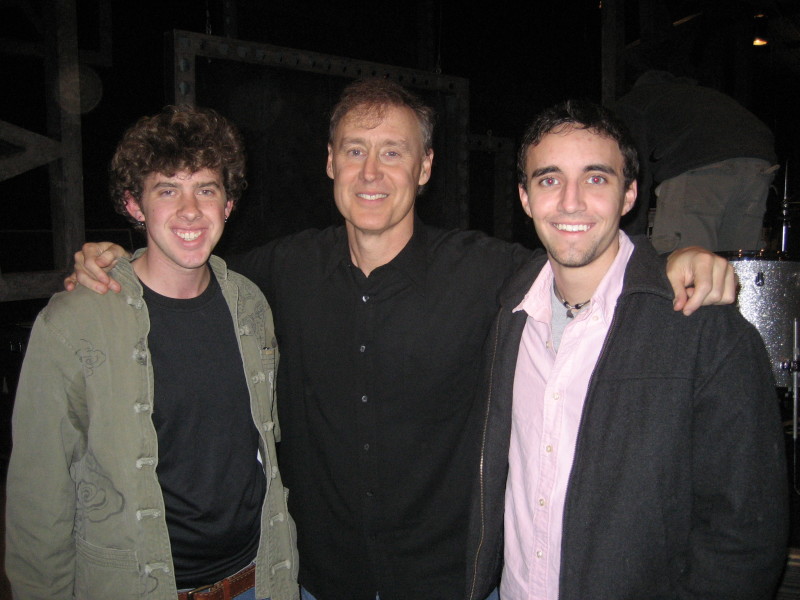
It turns out he had seen my video of Spider Fingers online, and he said;
“Yes, that’s the toughest tune I play and here you’ve made it sound effortless,”
Needless to say, that’s been one of the coolest moments of my career.
This is What Bruce Was Talking About
Steve: What is the song you most enjoy playing- have the most fun?
Kory: This is where I should probably tell you it’s some emotional piece off the record, some overly technical number, or some hit I’ve recorded on for another artist, but honestly I have the most fun when I play “The Weight” by the Band. I love that song, and I never really take the time to think about why, I just make sure I put it into every set we play.
Steve: What was it like playing at the Hollywood Bowl? How did that gig happen?
Kory: That was a special day. I played it with Justin Moore on the Brad Paisley tour. Earlier in the day, I had coffee with Mike Regan, who manages one of my biggest influences, Yanni. When you grow up in eastern Kentucky and get to have coffee with your hero’s manager before you go play the Hollywood Bowl with your best friends, it’s safe to say you’re blessed beyond imagination.
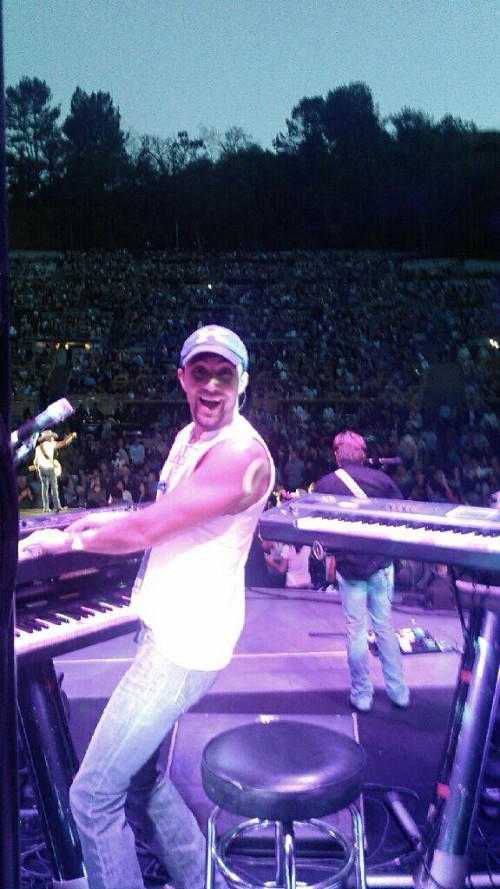
Steve: What’s your schedule like for the rest of the year?
Kory: I have several concerts that we’re waiting to confirm for the coming months, and we’re doing a very busy radio tour this summer. All this will lead up to a major event we have planned late fall and a Christmas tour that ends with our annual Christmas special in Elizabethtown, Kentucky.
Steve: Thanks, Kory. Looking forward to seeing you at “Live at the Ludlow Garage” in Cincinnati, Ohio May 13th, 2017.
Before You Go, Watch The Real Spider Fingers Take on Frankenstein
####
For more information on Kory Caudil go to:
Website: www.KoryCaudill.com
Twitter: @KoryCaudill
This article first appeared in Insider Music Magazine.

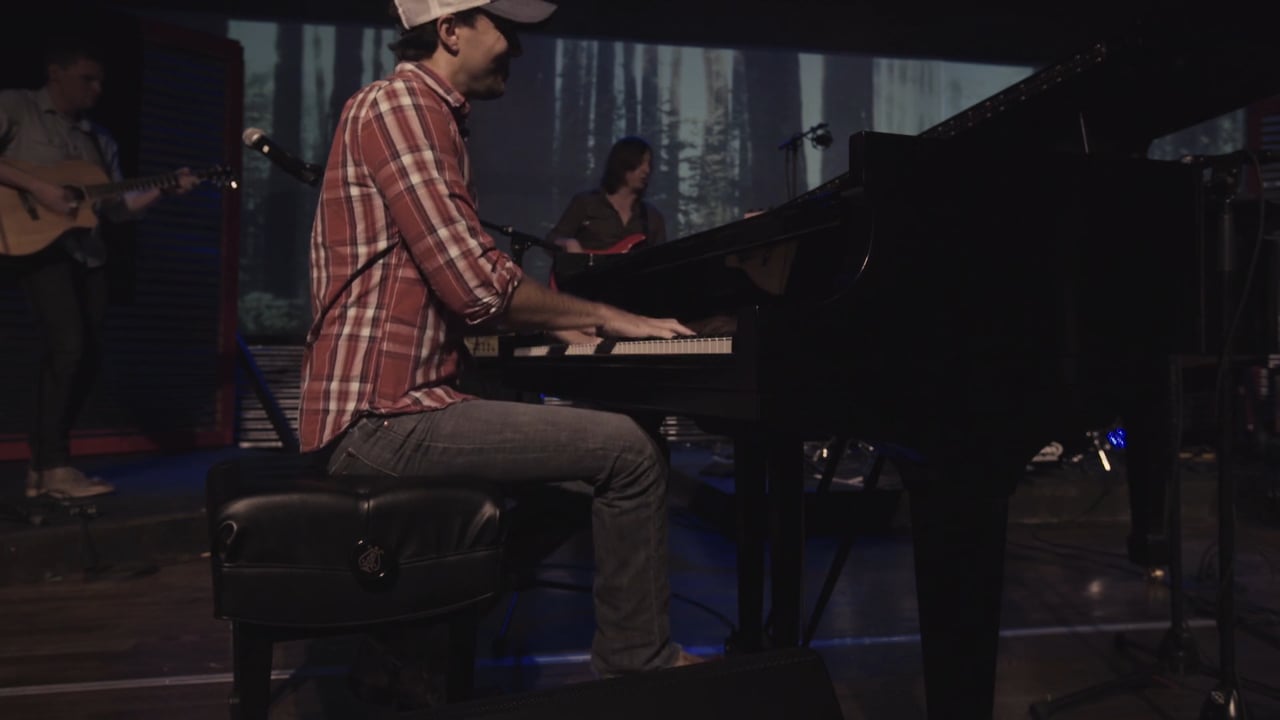

Recent Comments
Lessons Learned from Hollywood STORY Guru Robert McKee